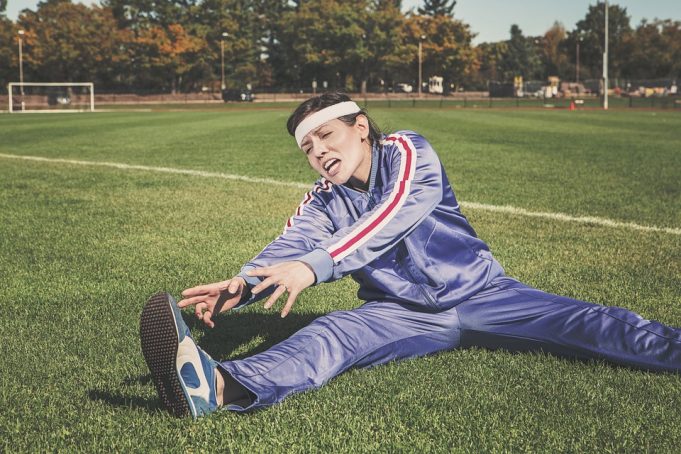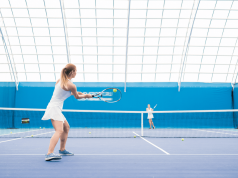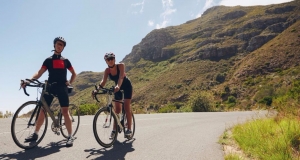No matter whether you are training for you first triathlon or your 100th, a sprint triathlon or an Ironman, getting your training recovery right can make all the difference.
Overloading your body (training) and then allowing it to recover is what causes your body to adapt and improve. If you can optimise your recovery, you can enhance your adaptation and therefore improve your triathlon performance.
Full recovery from a hard triathlon training session can take 36 hours or longer. Most triathletes will be training more regularly than this, so how do you stop yourself getting over fatigued?
There are several tools you can use to optimise your triathlon training recovery:
Nutrition
Rest
Sleep
Ice baths
Contrast bathing
Compression garments
Massage
Nutrition
Probably the most important factor influencing your triathlon training recovery. Get it right and you will train well. Get it wrong and you will struggle to train effectively for more than a few days. What you eat and when after a training session can have a huge impact on your recovery. It will also impact your readiness for your next triathlon training session.
After a training session you need to restore the carbohydrates that have been used.
Triathlontraining nutritionIdeally you would do this within the first 30 minutes after finishing your training session. This is because the uptake of glycogen (carbohydrate) into the muscles is improved during this time.
Aim to take on board 1 to 1.2 grams of carbohydrate per kilogram body weight. This does not have to be in the form of food, there are plenty of recovery drinks available, or you can make your own.
Ideally the carbohydrate will have a high glycemic index, meaning it is broken down quickly and therefore allows the glycogen to be taken up by the muscles quicker. Most sports drinks are high glycemic, as are soft drinks, rice, sweets/candy, white bread and most baked goods.
There should also be some protein in your recovery meal or drink, as this improves muscle repair. A ratio of 4:1 carbohydrate:protein content is ideal.
Continue to replenish your carbohydrate stores by eating small meals high in carbohydrate every 2 – 3 hours after a long (90 minutes or longer) hard training session.
Getting your nutrition right at this stage will also improve your immune function which is usually suppressed after a hard training session. Therefore if you regularly get coughs and colds, have a look at your post-training nutrition!
Rest
Rest days are essential. Aim to have one full day off training each week, or at least at regular intervals during your triathlon training cycle. Learn to listen to your body. If you are struggling to complete a training session in the way intended, then maybe you need to take a day off. You do need to push on through fatigue occasionally, but not to the extent that you regularly need several days off to recover.
Sleep
A good night’s sleep is probably one of your best recovery ‘tools’. Your immune system is boosted by sleep, neural pathways that have been stimulated by training are reinforced and muscle damage is repaired. The amount of sleep that is needed varies from person to person. In simplest terms, you need as much sleep as is required to make you feel recovered or rested the next day.
Ice Baths
Ice baths are thought to have several beneficial effects, such as:
Reducing inflammation
Enhancing removal of waste products
Reducing muscle soreness
Allowing optimal uptake of fuel for recovery.
You can either use an ice bath for a consistent 10 – 15 minutes maximum, at a temperature around 60F, or else intermittently, for example 5 x 1 minute at around 52F.
There is increasing evidence that ice baths should not be used on a regular basis, as they appear to impair adaptation to training. For example a study showed that a group of athletes who did downhill running followed by an ice bath suffered soreness after their next downhill run without an ice bath. However the group that did not have an ice bath the first time did not suffer soreness after their next downhill run.
So the best time to use ice baths is in the lead up to a triathlon competition when you want to enhance your short-term recovery, or after a particularly hard session when you need to follow this up with another hard session.
Contrast Bathing
This is when you move from backwards and forwards between hot and cold water. The theory is that the changes in temperature enhance dilation and constriction of the blood vessels, improving blood flow. This improves the removal of waste products and the uptake of fuel back into the muscles. Always finish with cold water.
Compression Garment
compression kit Compression garments such as tights and socks are designed to apply pressure, which increases the rate of blood flow to the muscles. This is thought to improve the rate of removal of waste products and reduce muscle damage. Some people train in compression kit, and this has been shown by some research studies to enhance performance in some types of activities.
If you don’t want to train in compression garments you can put them on immediately after training and keep them on for up to 96 hours after training.
Massage
There is not a lot of research supporting the claims that massage enhances recovery. In theory massage improves blood flow and muscle relaxation, however there is no evidence that this actually improves performance.
However it does appear that massage has a positive psychological impact and there is a lot of anecdotal evidence that regular massage can reduce injury rates. If you are doing multiple triathlon training sessions in one day over a long period of time then massage would appear to be the best way to maintain muscle ‘looseness’ and relaxation.
Summary Of Triathlon Training Recovery
There are a range of tools you can use to enhance your recovery, many of them (but not all) outlined above.
Getting your nutrition right is key, as is having adequate rest and sleep.
In addition it would be a good idea to use a variety of the other tools such as contrast bathing and compression garments to really get the most out of your recovery so that your triathlon training is as effective as it can be.
For a detailed description of how to monitor your triathlon training recovery visit: http://www.intelligent-triathlon-training.com/triathlon-recovery.html , plus pics, http://www.articlesbase.com/outdoor-sports-articles/enhance-your-triathlon-training-recovery-4924589.html
















